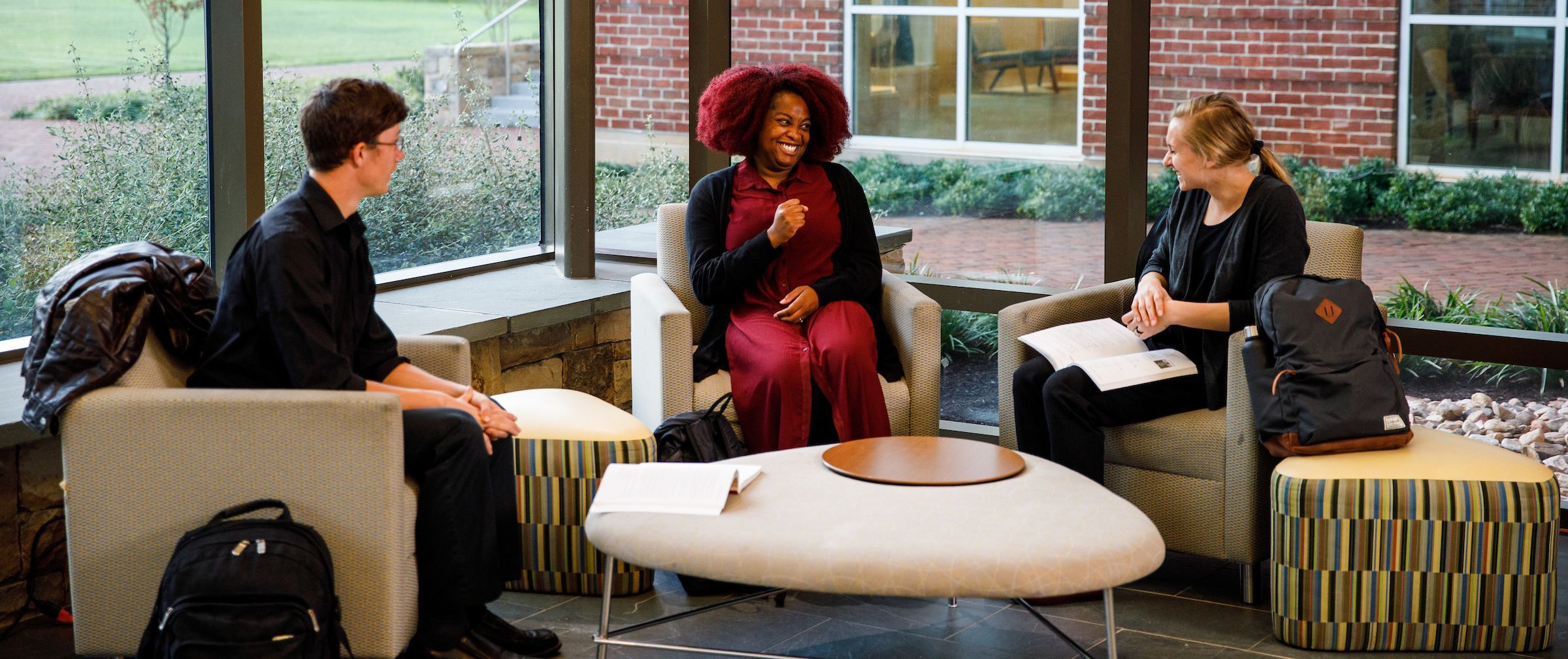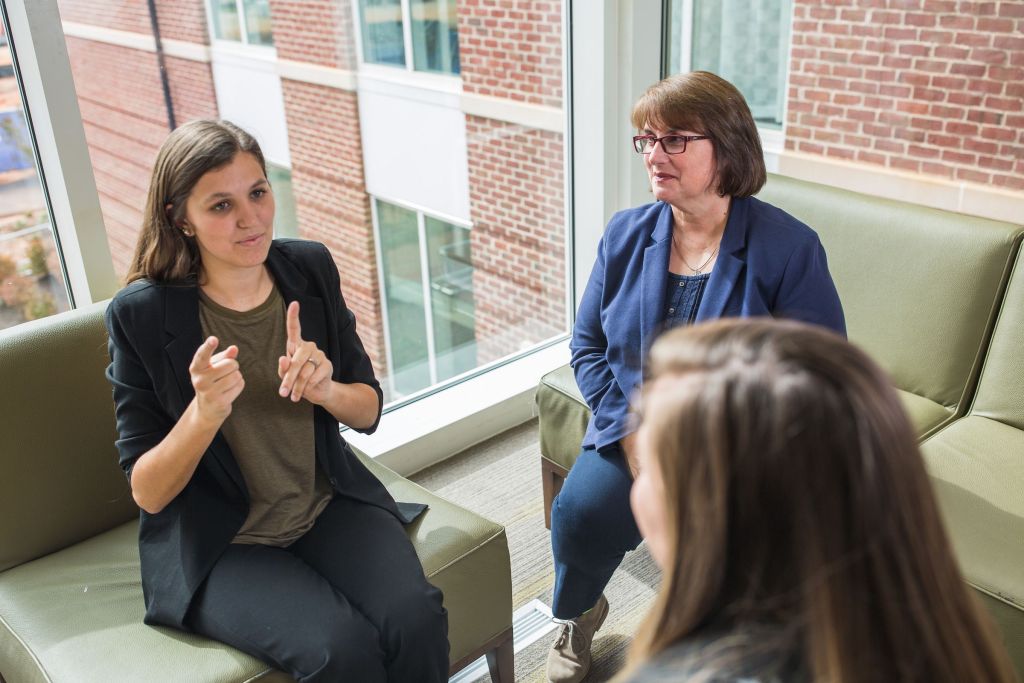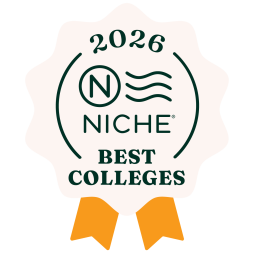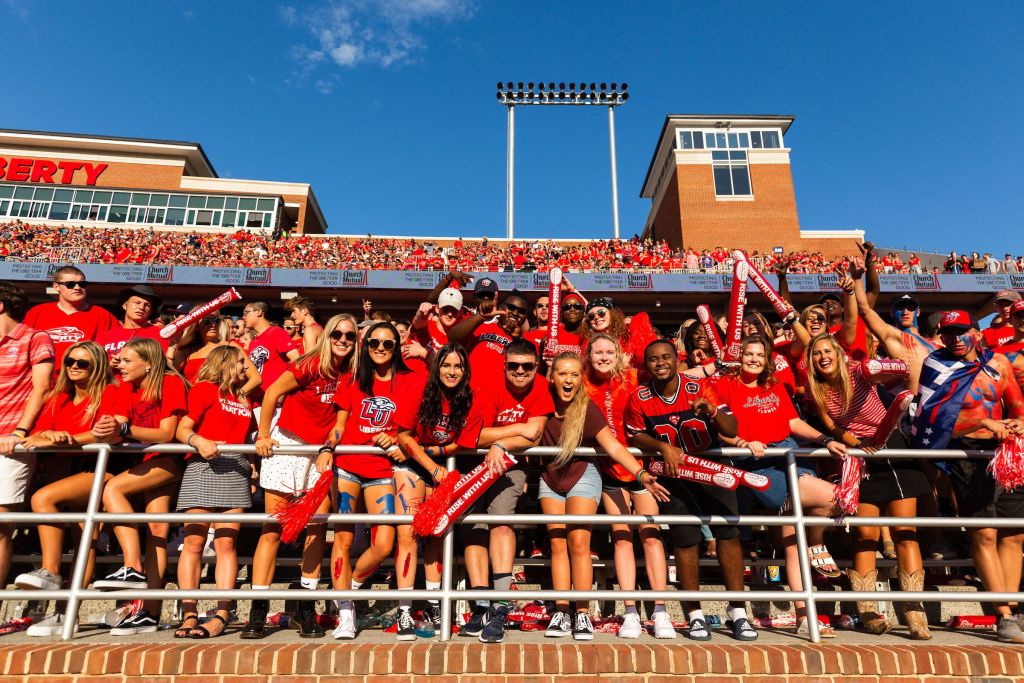
Associate Degree in American Sign Language
Prepare to Connect with the Deaf Community in Meaningful Ways with Liberty’s Associate Degree in ASL
If you’re looking to study a rich and expressive language in a hands-on environment, Liberty University’s Associate of Arts (AA) in American Sign Language (ASL) could be a great next step for you. This program gives you the opportunity to explore ASL as a full language with its own structure, grammar, and cultural context. Whether you’re new to signing or continuing previous study, you can start developing a stronger understanding of both the language and the Deaf community it serves.
Through this degree, you’ll study fingerspelling, interpreting, and practical conversational skills while also examining the social and historical aspects of Deaf culture. Our goal is to help you build a foundational skill set that can be applied to a variety of future settings – from further education to service-oriented roles. You’ll also be encouraged to think critically about language accessibility and cultural inclusion as you engage with course material and your peers.
Liberty University’s commitment to service, compassion, and Christ-centered values shapes every aspect of its academic community – including the study of American Sign Language. Learning ASL at Liberty is not only about mastering vocabulary and grammar; it’s also about understanding and respecting the Deaf community as a unique cultural group with its own history, perspectives, and contributions. By exploring ASL within a values-driven environment, you’ll be encouraged to approach language learning with humility, empathy, and a desire to serve others.
Credit Hours
View CoursesNext start date: Aug 24, 2026

Liberty University is accredited by SACSCOC
Highlights
Highlights of Our Associate Degree in American Sign Language
Accredited Academics
Liberty University is accredited by the Southern Association of Colleges and Schools Commission on Colleges (SACSCOC), which affirms the quality and integrity of our academic programs. This accreditation can help support the credibility of your associate degree as you pursue further study or explore future opportunities.
Experienced Faculty
Courses in the AA in ASL program are taught by faculty who possess both academic expertise and real-world experience in sign language and Deaf culture. Their guidance can help you approach the language with a combination of technical skill and cultural sensitivity.
In-Person Collaboration
As a residential program, the AA in ASL offers regular face-to-face interaction with classmates and instructors. This environment can help give you the opportunity to grow in fluency and confidence as you engage in live conversation and hands-on practice.
Clubs and Honor Societies
By joining Liberty’s ASL Club or the ASL Honor Society, you can take advantage of opportunities to connect with peers, build community, and participate in events that promote awareness and appreciation for Deaf culture.
Career Potential
What Can You Do with an ASL Associate Degree?
Liberty University’s Associate of Arts in American Sign Language can help prepare you to pursue the following occupations:
- Church ministry worker
- Deaf community advocate
- Marketer for the Deaf community
- Social service assistant
- Support staff in healthcare or educational settings


#2 Best College Campus in America
At Liberty, you’ll find an affordable, high-quality education designed to help equip students like you for the real world. Our commitment to excellence has earned us recognition as the #2 Best College Campus in America by Niche.com for 2026.
Earning your degree from a nonprofit university with state-of-the-art resources like ours can help set you apart from your peers.
Courses
What Will You Study in Our Associate Degree in ASL?
Whether you are interested in a career in interpreting or simply looking to build connections with people around you, Liberty’s Associate of Arts in American Sign Language can help you gain a strong foundation in ASL essentials. In this program, you can learn about topics such as functional grammar, basic vocabulary, practical conversational skills, fingerspelling, and number systems. You’ll also study ASL storytelling and explore how to apply language skills to more abstract communication, such as ideas and concepts.
Other topics of study include main idea comprehension, summarizing, paraphrasing, visual form, and meaning. By receiving an introduction to American Sign Language/English interpreting, you can further hone your skill set and prepare to pursue a variety of job opportunities. As you study interpreting, you’ll explore subjects such as terminology, ethics, professional attire, and current professional trends.
During your journey into the world of ASL, you can not only learn about the technical aspects of the language but also develop an understanding of the people who use it. That’s why our program addresses the history of and current trends within the American Deaf community. You’ll have the opportunity to take an in-depth look at cultural, educational, and political aspects of the community as well as study Deaf literature and sociolinguistics. That way, you can grow in your ability to serve Deaf individuals and build deeper connections with them.
Featured ASL Degree Program Courses
ASLI 101 – American Sign Language I
ASLI 212 – Theory and Application of Fingerspelling and Numbers
ASLI 310 – Deaf Studies
ASLI 313 – Introduction to Interpreting
Degree Information
- This program falls under the College of Arts and Sciences
- View the Degree Completion Plan (coming soon)
- Check out our course catalog
- Transfer in up to 75% of the degree total
BENEFITS
Why Choose Liberty’s American Sign Language Associate Degree?
Study ASL in a Faith-Based Environment
At Liberty University, you’ll study in an environment shaped by Christian values like service, compassion, and dignity for all people. This focus can help you view communication not just as a skill, but as a way to connect meaningfully with others – especially those in the Deaf community who face many social and linguistic barriers.
As you develop your understanding of ASL, you’ll also be led to consider the role that respect, empathy, and accessibility play in language learning. In each of your courses, you’ll be encouraged to approach your coursework with greater purpose as you explore how language can serve others and build community.
Learn from Faculty with Practical Experience
In the AA in ASL program, you’ll study under faculty who bring both academic expertise and real-world experience to the classroom. Many have backgrounds in areas such as interpreting, Deaf education, and language studies, which can help you gain a broader view of how ASL is used in schools, healthcare, ministry, and community settings.
Their firsthand knowledge of Deaf culture and communication norms can also offer helpful context as you develop your signing skills. This kind of insight can support your understanding of ASL as a living, dynamic language shaped by a vibrant and diverse community.
Build Skills Through In-Person Learning
As a residential student, you’ll have the chance to learn ASL through face-to-face instruction and regular in-class practice. ASL is a visual language, and learning it in person can help you better understand nonverbal cues, facial expressions, and spatial grammar.
You’ll be able to observe your professors and peers signing in real time and participate in activities that mirror real-life conversations. This interactive learning experience can provide a strong foundation as you work to develop fluency, accuracy, and confidence in your use of ASL.
Get Involved Outside the Classroom
Liberty’s ASL Club and chapter of the American Sign Language Honor Society offer you additional ways to engage with ASL and the Deaf community beyond your academic coursework. The ASL Club hosts events that highlight Deaf culture, promote awareness, and create space for meaningful interaction and community-building.
If you meet the eligibility requirements, you may also qualify to join Liberty’s chapter of the American Sign Language Honor Society – a group that recognizes academic achievement and fosters community service and leadership. Through these organizations, you can take part in activities that support learning, encourage connection, and highlight the importance of accessibility and cultural appreciation.
Admissions
How Do You Become a Student in the ASL Degree Program?
Every application is reviewed by the admission committee on a case-by-case basis, meaning there are no set minimums for acceptance. However, all applicants must submit the following documents* for admission:
- Admission application
- Official high school transcripts
- Official college transcripts (if applicable)
- Admission essay
Results from the CLT, SAT, or ACT are not required for admission, but may be used in consideration for merit-based aid.
*Note that additional documentation may be requested by the admission committee after your application has been received.

Have Questions?
We’ll make sure you have the information you need to take your next step.